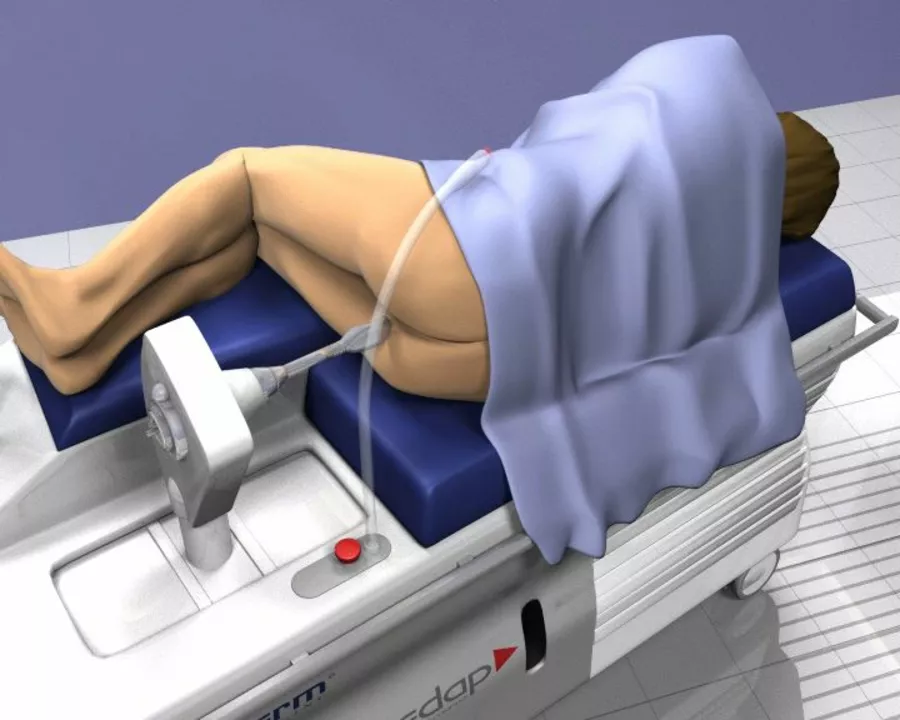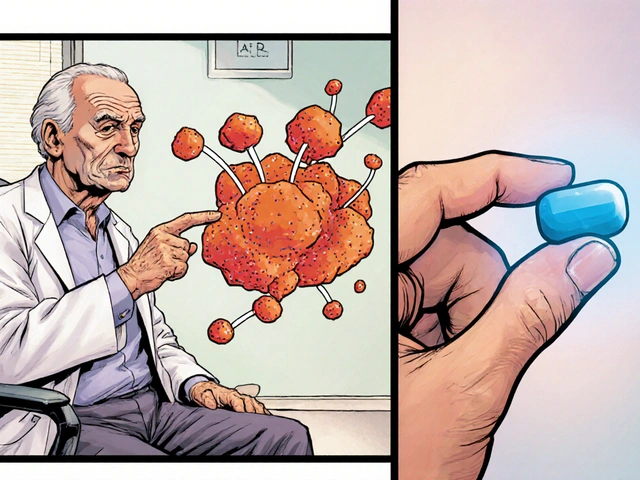Enzalutamide: What it treats and how it works
Enzalutamide (brand name Xtandi) is a pill used to treat prostate cancer that no longer responds well to lowering testosterone. It blocks the androgen receptor so cancer cells can’t use male hormones to grow. Doctors prescribe it for metastatic castration-resistant prostate cancer and for certain non‑metastatic cases at high risk of spreading.
How enzalutamide is used
The usual dose is 160 mg once daily (taken as tablets or capsules). You can take it with or without food, at the same time each day. Keep taking any hormone-lowering therapy your doctor ordered unless told otherwise. If you miss a dose, take it as soon as you remember the same day; don’t double up the next day.
Some medicines change how enzalutamide works. Strong inhibitors of CYP2C8 (for example gemfibrozil) can raise enzalutamide levels — your doctor may lower the dose. Drugs that strongly induce CYP enzymes (like rifampin) can reduce its effect. Enzalutamide itself can lower blood levels of many drugs by inducing CYP3A4, CYP2C9, and CYP2C19. That matters for blood thinners, seizure meds, certain antidepressants, hormonal contraceptives, and others. Always tell your provider about all prescriptions, OTC meds, supplements, and herbal products.
What to watch for and practical tips
Common side effects include fatigue, hot flashes, headache, diarrhea, muscle weakness, and elevated blood pressure. Falls and fractures are more likely in some patients. Seizures are rare but serious — report any fainting, twitching, or new confusion right away. Your doctor will likely check blood pressure, ask about balance and mood, and may order blood tests to watch liver function and other markers.
A few simple safety tips: don’t drive or operate heavy machinery until you know how the drug affects you; use reliable contraception if you or your partner could be exposed during treatment; sit or stand slowly if you feel lightheaded; and remove trip hazards at home if you feel unsteady. If you’re prescribed a blood thinner, your INR or clotting tests may need closer monitoring while on enzalutamide.
If side effects become hard to manage, talk to your oncology team rather than stopping the drug on your own. Dose changes, short breaks, or supportive medications can often help. Keep an up-to-date medication list and bring it to every appointment.
Enzalutamide can be very effective for the right patients, but it needs careful oversight. Ask your doctor specific questions about interactions with your medicines, seizure risk, blood pressure control, and bone health so you get the most benefit with the least harm.

Real-Life Stories: How Enzalutamide Has Helped Prostate Cancer Patients
I recently came across some incredible real-life stories of prostate cancer patients who have benefited from Enzalutamide, an advanced treatment option. These inspiring accounts showcase the significant improvement in patients' quality of life and the prolongation of survival rates. Many individuals shared their gratitude for this breakthrough medication, as it has allowed them to continue leading fulfilling lives. In my blog, I have highlighted these powerful stories to raise awareness and provide hope for those currently battling prostate cancer. Enzalutamide has truly made a positive impact in the lives of countless patients and their families.
Categories
- Medications (70)
- Health and Medicine (60)
- Health and Wellness (36)
- Online Pharmacy Guides (16)
- Nutrition and Supplements (8)
- Parenting and Family (3)
- Environment and Conservation (2)
- healthcare (2)
- prescription savings (1)
Popular Articles



